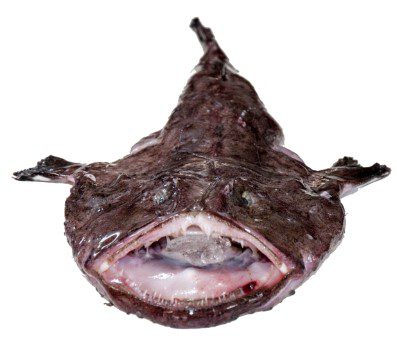

Monkfish, also known as Goosefish, is a moderate-level mercury fish that can be safely given to dogs if served in moderation. Rich in vitamins A, B6, E, and K, as well as important minerals such as calcium, iron, niacin, phosphorus, potassium, riboflavin, thiamine, and zinc, monkfish is beneficial for organ health and boosting immunity. However, due to its high mercury content, it can be dangerous if served too frequently or in large amounts.
When moderation is observed, monkfish can provide numerous nutritional benefits to dogs. The omega-3s, magnesium, and protein in monkfish promote healthy cognitive functions and cell growth and repair. Vitamins A, B6, E, and K provide nutrients to boost immunity and support heart, nerve, and skin health. And minerals such as calcium, iron, niacin, phosphorus, potassium, riboflavin, thiamine, and zinc promote organ health.
One of the primary risks associated with monkfish is its mercury content. If served too frequently or in large amounts, mercury poisoning can occur. In addition, monkfish has one large backbone, which is a choking hazard and can cause gastrointestinal blockage in dogs when ingested. Lastly, raw monkfish may contain bacteria and parasites.
The gills, scales, and bones must be removed from monkfish before serving. The fish should then be cooked thoroughly and given to your dog in bite-sized pieces. Monkfish should only be given to your dog as an occasional treat and in moderation to avoid potential health risks.
Monkfish is a seafood that goes by many names, including Goosefish. It hails from the Atlantic Ocean and the Mediterranean Sea and is often used as a human food ingredient due to its wide variety of nutritional benefits. For dogs, monkfish contains omega-3s, magnesium, and protein which aid in mental alertness and tissue repair. In addition, vitamins A, B6, E, and K aid in immunity while minerals such as calcium, iron, niacin, phosphorus, potassium, riboflavin, thiamine, and zinc support organ health. However, be cautious with the dosage of monkfish you provide your pet due to its high mercury content, which if served in large amounts can cause mercury poisoning. Before serving it, the gills, scales, and bones must be removed and the fish should be cooked thoroughly. Monkfish should only be given to your pet occasionally in moderation to avoid potential health risks.
Alternatively, you can try feeding your pup sardines or salmon instead of monkfish. Sardines are a great source of omega-3 fatty acids while salmon is rich in protein. If you’re ever unsure about what to feed your pup, it’s best to consult with your veterinarian first.
Do all types of fish contain mercury? Are there any precautions to consider when feeding my pup fish?
Yes, all types of fish contain some level of mercury, although the amount varies. Therefore, it’s important to check the mercury levels and steer away from large fish, such as tuna, swordfish, mackerel, and shark, which tend to accumulate high levels of mercury. Additionally, it’s important to remember that fresh, uncooked fish can contain parasites and bacteria, so it's best to cook them thoroughly before serving.
Has your pup ever tried monkfish before? How did they enjoy it? Share with us about your pet’s experience! No matter where you get your fish, remember to feed your pup in moderation to avoid potential health risks.